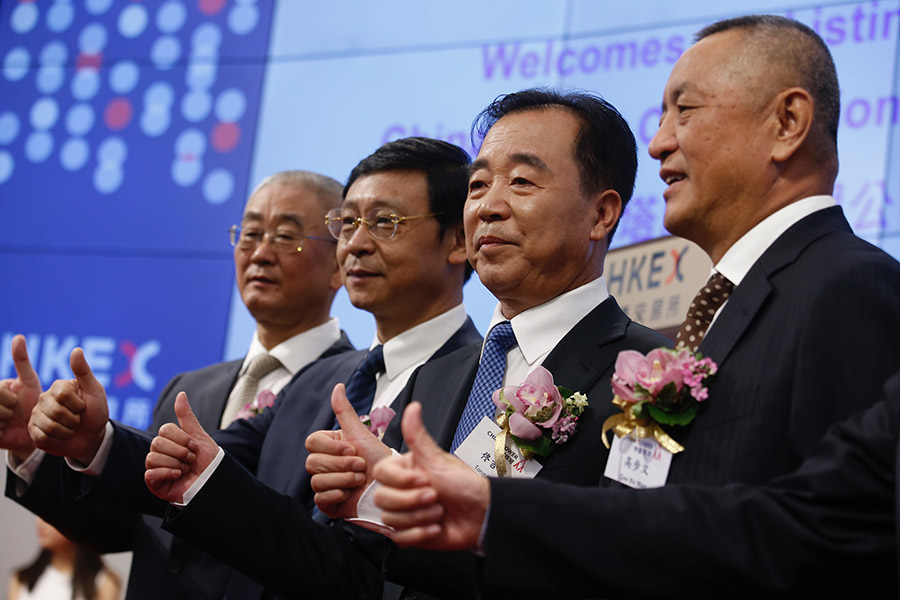China Tower fails to attract investors in lackluster Hong Kong offering


China Tower, the world's largest telecommunications tower operator, got off to a muted start on its first day of trading in Hong Kong, replicating the ill-timed debuts of companies like Ping An Good Doctor and Xiaomi as the protracted Sino-US trade friction continued to affect on market sentiment.
After raising HK$54.3 billion ($6.92 billion) in an initial public offering priced at the bottom of its marketed range at HK$1.26, the first day of trade saw the shares close flat at HK$1.26 on Wednesday.
This comes after the shares drew bids at a 1.59 percent discount in the gray market on Tuesday among retail investors, who gave China Tower a cold shoulder by placing orders just 0.36 times more than the number of shares available to the public.
Despite being the largest flotation in the world since Postal Savings Bank of China's HK$56.6 billion offering in 2016, the blockbuster IPO turned out to be the least sought-after in recent months, only attracting 45,800 retail investors.
The mega-sized deal comes at a delicate time, as escalating Sino-US trade tension casts a shadow over the city's stock market and the lukewarm performance of high-profile companies including Ping An Good Doctor and Xiaomi dampens investor enthusiasm.
Founded in 2014 from the combined tower assets of the country's three Hong Kong-listed and State-backed telecoms providers - China Mobile, China Telecom and China Unicom - China Tower is losing no time in jumping on the nation's 5G network bandwagon, China Tower Chairman Tong Jilu said.
Patrick Shun, Hong Kong-based investment manager of Tengard, said: "As China Tower plans to speed up the construction of the 5G network, the potentially huge investment expenditure or low dividend yield make it the sort of stock from which you could hardly expect any explosive growth in the share price, and it may not be a good fit for aggressive retail investors," said.
Nasdaq-listed biotech company BeiGene also made its Hong Kong debut on Wednesday with a whimper.
Shares of the Beijing-based cancer drugmaker, which raised $903 million after pricing its Hong Kong flotation near the top of an indicative range at HK$108, edged down 0.93 percent to finish at HK$107.
BeiGene is the second biotechnology firm to sell shares in Hong Kong after the financial center opened the door wider for early-stage biotech companies without a track record of profit or revenue in April this year.
The benchmark Hang Seng Index edged up 0.39 percent, or 110.26 points, to finish at 28359.14 points on Wednesday.



































